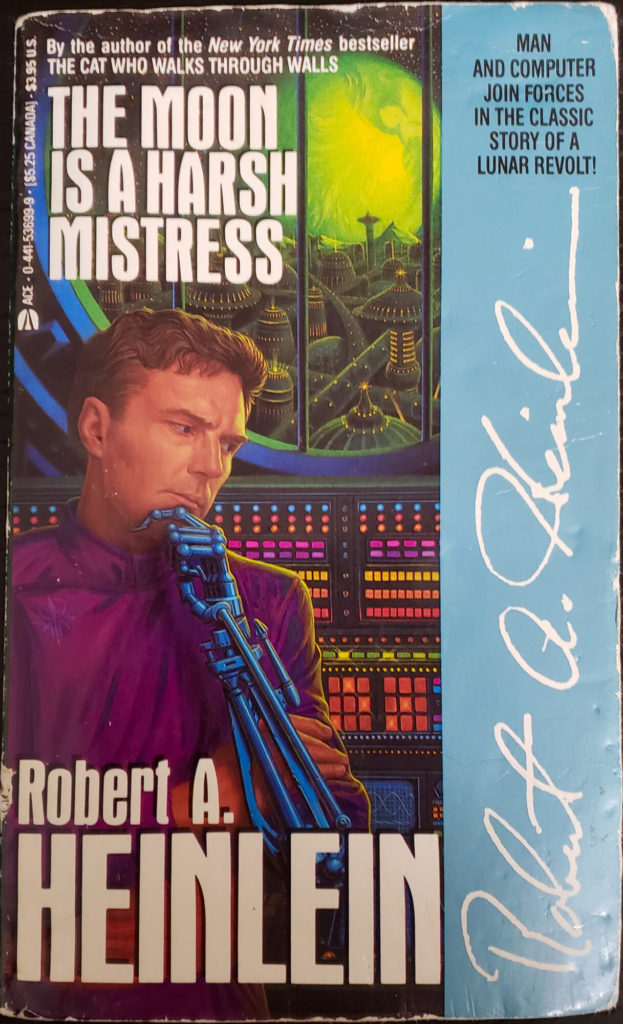The second book in this very occasional series is … well, any of Heinlein’s juveniles. The cover is from the final book in the series, Have Space Suit, Will Travel (1958). It features bug-eyed monsters, space pirates, and a plucky hero who saves the earth from alien invaders over Labor Day weekend and still makes it back in time to get a free-ride scholarship at M.I.T. and throw a milkshake at the antagonist. Plus, we are taught a handy mnemonic for the order of the nine planets (see below) and a parable about frogs that isn’t the one about boiling them slowly. (Sorry for all the spoilers, but you’ve had 62 years.)

For this posting of my #2 fiction book, I could have picked any one of the series. They’re all great (except, I guess, Rocket Ship Galileo, the first). I mean, they were great when I first read them, starting in junior high school, when the science was only a little bit dated. (Venus had turned out not to have swamps, for example, and Mars never had canals. Jupiter’s EM environment would probably make Ganymede a poor place to farm.) Starting in 1953, after a few books set in our solar system, Heinlein got wise and set his stories somewhere more romantic.
But despite that, the juveniles are still great. Honestly, they’re better than most of Heinlein’s non-YA fiction. Practically all of it. Especially if you see Starship Troopers as the YA fiction that it ought to have been.
What are you waiting for? Get started! For a complete list, see the wikipedia article (search “heinlein juvenile”). But you’ll need to get them new. We never put the old ones back into circulation.



